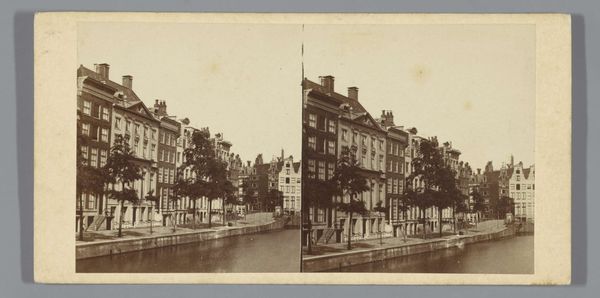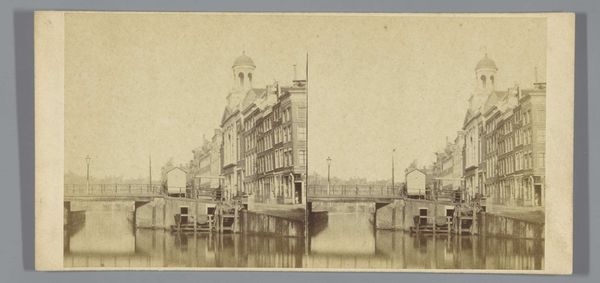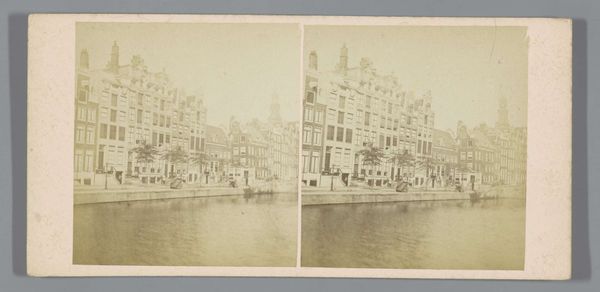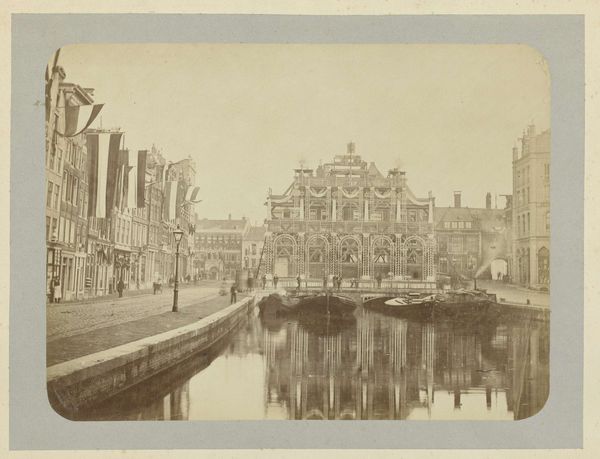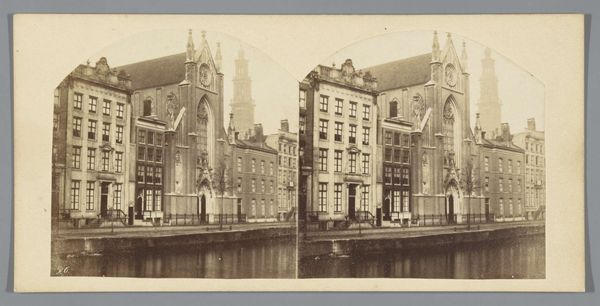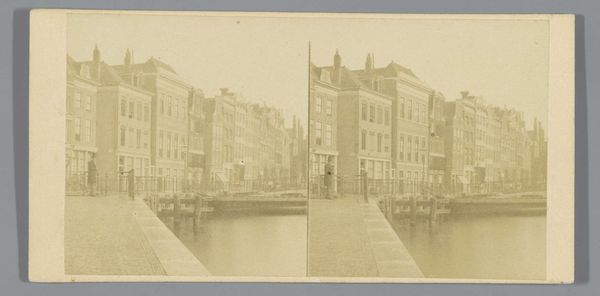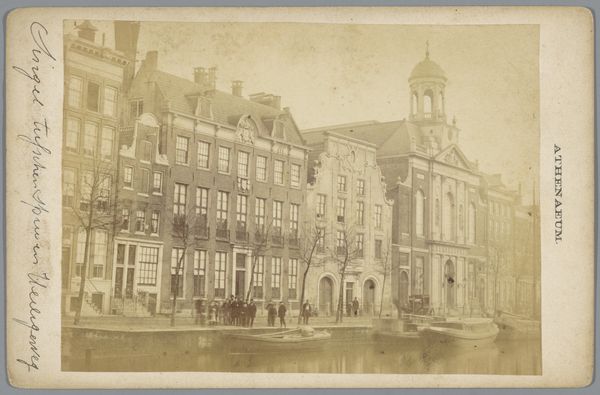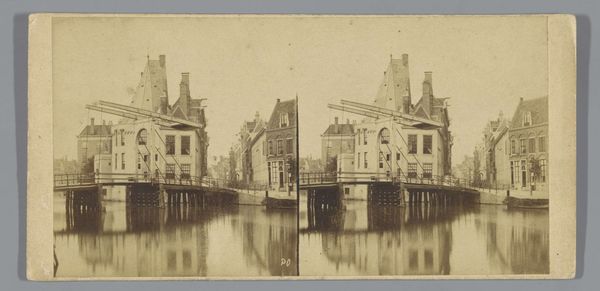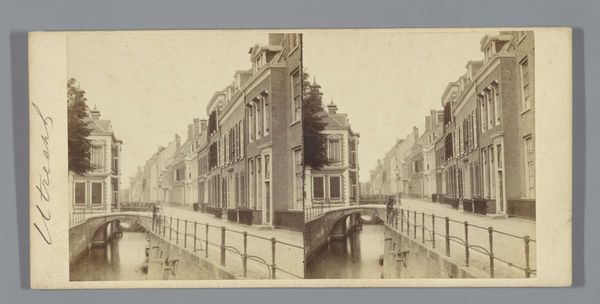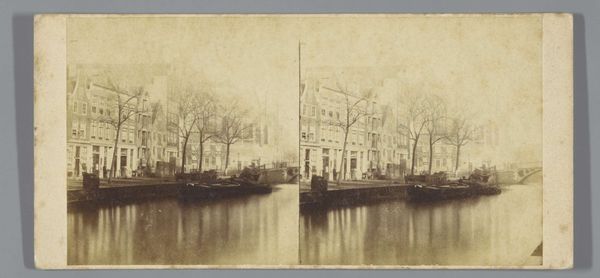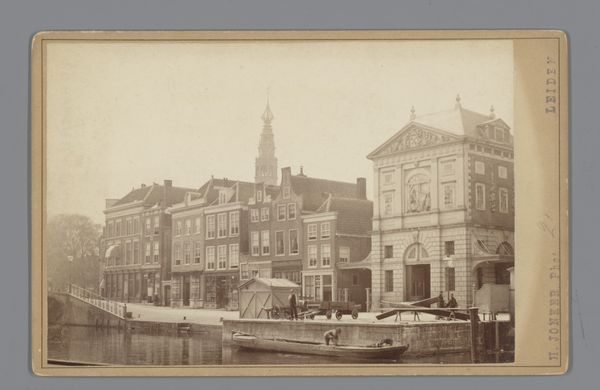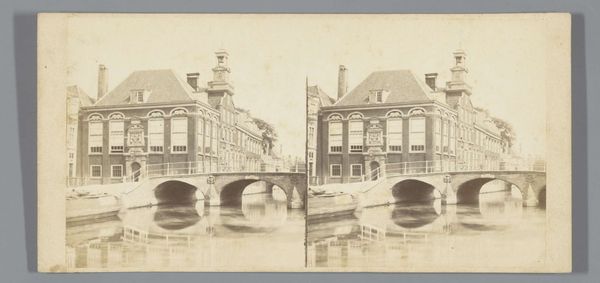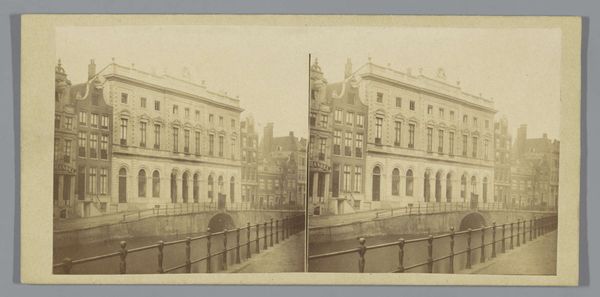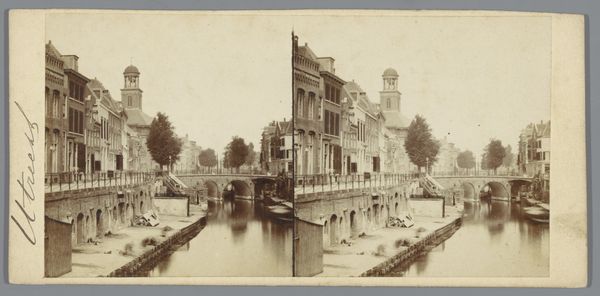
photography
#
16_19th-century
#
photography
#
cityscape
#
realism
Dimensions: height 82 mm, width 173 mm
Copyright: Rijks Museum: Open Domain
This stereo card of the Beurspoortje in Amsterdam was made by Pieter Oosterhuis sometime in the mid-19th century. This photographic technique involves capturing two slightly different images of the same scene, then mounting them side-by-side. When viewed through a special stereoscope, the brain merges the two images, creating an illusion of three-dimensionality. The rise of photography was deeply entwined with industrial advancements and consumer culture. Photographic materials like glass plates and chemical developers were manufactured on a mass scale, making the medium more accessible. Studios popped up in cities, offering portraiture to a broader public than ever before. Stereo cards, in particular, became a popular form of entertainment and education. People could collect and trade views from around the world, experiencing faraway places from the comfort of their homes. This democratization of image-making challenged traditional art forms, blurring the lines between craft, industry, and art. Oosterhuis's photograph reflects how new technologies reshape our understanding of visual culture.
Comments
No comments
Be the first to comment and join the conversation on the ultimate creative platform.
